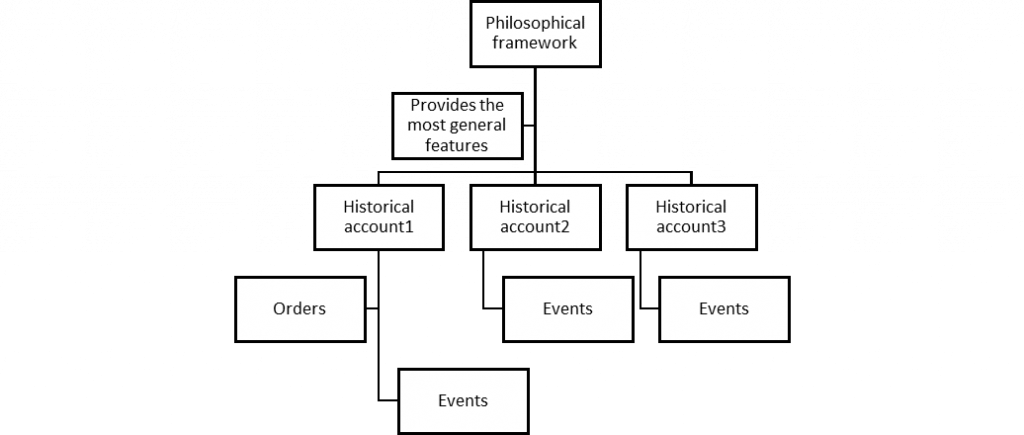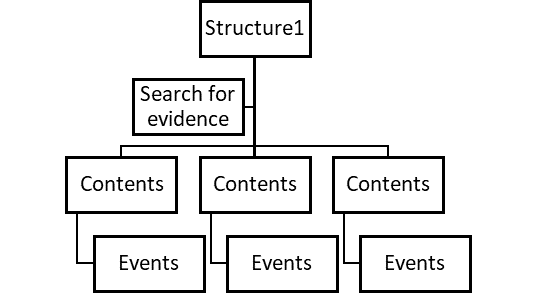Imre Lakatos (1922-1974) famously argued that we should make the history of science understandable by rationally reconstructing it. We have to formulate normative “methodologies” of science, i.e. accounts that tell how science should proceed in gathering and organizing its knowledge (e.g. inductivism, conventionalism, falsicationism, methodology of research programs), and produce historiographies of science that explain the development of science in terms of the methodologies. A historiographical work that explains the development of science on the basis of a philosophical account is a rational reconstruction of the history of science. The accounts are supposed to be accounts of scientific rationality, and a historiographical work that relies on an account of rationality therefore attempts to show that science has developed rationally. Basically, Lakatos suggests a theory-driven approach to the history of science. We need to explain as much as we can in terms of a philosophical account. We should rely on other factors only in cases that the account cannot explain. At the same time, we can evaluate the relative merits of a philosophical account by examining to what extent the history of science can be explained by using that account. The more of the history of science an account deems rational, the better the account is.
There are two obvious worries. First, it seems that a theory-driven account leads inevitably to a distortion of the past. Why should the historical reality conform our philosophical theories? The second and related problem is that even if the history could be explained theoretically, why should theories of rationality be preferred? Perhaps the best explanatory theory of development of science does not define any rational methodology but relies on power structures, for example.
It has been suggested that possible distortion of the past is not a problem for Lakatos’s view. Kuukkanen has argued that
“All history writing includes a theoretical basis of some kind and is indeed normative, implying selectivity and emphases on what is important and explanatory in history. [–]. [Lakatos unlike others] explicitly accepted that the same historiographical data can be brought into several alternative accounts, and he formulated some viable options using schemes and ‘philosophies of science’ of his time.” (2017, 91.)
In other words, the competition is not between historical accounts that tell how “things really went” and those that are driven by interpretative frameworks. The only differences are (i) what those frameworks consist of, and (ii) how explicitly they are used. We can already note an interesting consequence for scenario-work. If we are to use historical knowledge in scenario building, then we have to be aware of how an interpretative framework has shaped that knowledge. Moreover, we may be able to use similar frameworks when discussing the future. I come back to this theme soon.
Kuukkanen also suggests that
“Lakatos’s methodologies in the historiography of science should be understood as higher meta-level interpretative frames that provide the most general features of more specific accounts of historiography. Within these meta-frameworks it is possible to draft individual narratives or other integrative views of historical episodes. One frame can arguably subsume a large, perhaps infinite, number of lower-order accounts of history that employ the theoretical resources of that framework.” (2017, 85.)
This means that philosophical accounts do not necessitate only one reconstruction of a historical episode but allow the details to be tied together in many ways. Many historiographical reconstructions of a historical episode may satisfy the basic tenets of a philosophical account. For example, the reconstruction
“Scientists S performed experiment E and got result R. R showed that theory T is false. Therefore, the scientists went on develop theory T* (an alternative to T)”
and the reconstruction
“Scientists S had formulated two theories T and T* and needed to make a decision between the theories. S performed experiment E and got result R. R showed that theory T is false. Therefore, the scientists chose to use T*”
are both possible under falsificationism. The difference between them is in whether a “crucial experiment” is performed before or after a competing theory exists and is acknowledged – something that is often difficult to tell on the basis of historical record.
We can provide the following scheme:

A philosophical framework provides the most general features of a historical account (reconstruction). The historical account orders events in a specific way to make them understandable in terms of the framework.
This scheme looks oddly familiar. In the previous post, I provided the following scheme of how philosophical frameworks can be used to create taxonomies of possible futures of science:

In this scheme, a philosophical account provides the general structure possible futures of science. These futures do not differ with respect to their dynamics (for example, the logic of theory choice) but with respect to items that are under these dynamics (for example, what theories exist). Moreover, different items allow different events (for example, different theories lead to different experiments).
The similarities between Lakatos’s model of historiography of science and the taxonomical-structural model of futures of science suggest that Lakatosian rational reconstructions could be methodologically fruitful in scenario-work. The tools that enable historiographical insights and evaluation within the Lakatosian scheme above could be useful in scenario-work. For example, we might study whether one set of events could be ordered in different ways within a fixed future framework in the same way as a set of historical events can be ordered different ways even within a fixed framework.
There is also another connection between Lakatosian and structural-taxonomical approach. In the previous post, I argued that the structural-taxonomical approach connects historiographical counterfactuals and possible futures. Next, we will see the similarities between counterfactual histories and Lakatosian reconstructions. The Lakatosian way of thinking enables us to approach the question “What can we do?” and “What should we do?”.
Lakatos and Counterfactuals
I want to suggest a way of looking at Lakatos’s thinking that most certainly is not historically accurate. I suggest that rational reconstructions describe counterfactual histories that we wish were actual.
Considered the following problem (see details in Virmajoki 2019, 3.6). Scientists achieved a remarkable result R by acting in a way W that can be described by an account A. Now we can ask what difference W did make to the outcome. If it is true that “had scientist acted in way Q (described by account B), R would have been achieved anyway”, it seems that W was not so important. Q would also have resulted in R.
It is clear that the account A is descriptively better than the account B because A describes what actually happened. However, it does not follow that A is better than B simpliciter. Sometimes we want a model that works outside existing contexts – in the future, for example.
Let’s assume that A describes how a football team won after they injured the best player of the opposite team and that B describes a how the team would have won without injuring the player. Given that it is morally wrong to injure a player, we could say that footballers should play in accordance with B whenever possible. If the actual game could have plausibly been played in accordance with B, then B also tells how it should have been played.
In a similar manner, we might say that a philosophical account of science B is better than account A even if A describes how the remarkable result R was actually found. If B would also have led to R, then we might prefer B for many reasons. One of those reasons could be that it fits our conception of a rational activity. This could be Lakatos’s answer.[1]
However, if it is impossible to act in accordance with B, then it is rather futile to speculate what would have happened, had scientists acted in accordance with B. However, we can estimate how far-fetched an account is, i.e. we can tell whether it was possible to act in accordance with it. To simplify, we can write a counterfactual history where scientists acted upon B and then see how much it differs from the actual history (i.e. how many things in actual history are not included in the counterfactual scenario). The distance between actual history and the counterfactual scenario tells how plausible a scenario where the scientists acted in accordance with B is. Notice that the counterfactual scenario and the Lakatosian historical reconstruction are the same thing. Therefore, Lakatosian reconstructions can tell us whether it was possible to act in a desirable (rational) way. If a reconstruction is close to the actual history, then we can say that it is possible to act in accordance with that account, and because the account describes desirable activity, the reconstruction tells us how we should have acted in the past and how we should act in the future.
Lakatos’s methodology can provide us with counterfactual scenarios and normative recommendations. It is therefore a highly relevant methodology in thinking the history and future of science.
References
Lakatos, Imre (1971). “History of science and its rational reconstructions”. In R. C. Buck & R. S. Cohen (eds.), PSA: Proceedings of the Biennial Meeting of the Philosophy of Science Association. D. Reidel. pp. 91-108.
Kuukkanen, Jouni-Matti (2017). ”Lakatosian Rational Reconstruction Updated”. International Studies in the Philosophy of Science 31 (1).83-102
[1] Why do we prefer rationality? This question is too deep to be answered here. Probably a systematic account of rationality is something we can hope to be able to follow in future; how to perform irrational action is much harder to figure out – reasoning won’t help. We could perhaps also argue that rational actions are understandable unlike non-rational. A counterfactual history that show how some achievement (or outcome in general) could have been achieved through rational activity then serves as an idealized model of the actual history.
4 thoughts on “Rational Reconstructions from History to Future”